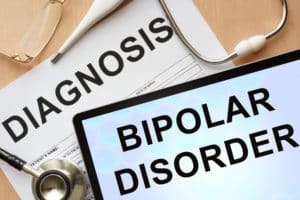Bipolar disorder is a lifelong illness. As of now, there is no known cure. However, there are several bipolar treatment guidelines that can help manage the disorder.
Overview of Bipolar Treatment Guidelines
When diagnosed with bipolar disorder, it’s always best to let your medical doctors guide you through the treatment. Find a specialist in mental health conditions who is also experienced in treating bipolar and other related disorders.
Also, keep in mind that the treatment is only to help manage the symptoms. As we mentioned, there is no cure for biploar disorder now.
Medication
Oftentimes, treatment includes a number of medications to help balance your mood.
Types
Your doctor may recommend a variety of medications for you based on different symptoms. The doses vary depending on how severe the symptoms are.
Medications may include mood stabilizers to help manage manic episodes, antidepressants to help manage depression, and antipsychotics to help manage symptoms of mania and depression.
Additionally, your doctor may recommend antidepressant-antipsychotic medications. This is a combination drug that acts as both depression treatment and mood stabilizer. You may also receive a prescription for anti-anxiety that can help improve your symptoms on a short-term basis.
Finding the right combination of medication may take some time. It differs for each patient. Sometimes it takes weeks up to months to take full effect.
Side Effects
Your doctors may also change your medications depending on the side effects and effects on your condition. As your symptoms change, your medication may also be altered.
Some medications will have mild side effects. This is because your body is adjusting to its effects. If you experience any bothersome side effects, it’s important to let your doctors know.
If you feel mild side effects, do not stop taking your medications unless your doctor says so. Once you stop taking medications, you may feel withdrawal effects. It may also worsen your symptoms if you stop taking medications.
Moreover, treatment needs to be continuous. Even when you’re feeling better, it’s important to continue your treatment.
Counseling and Treatment Programs
There are also instances where your doctor will recommend a day treatment program. This will include counseling and support groups.
Those who have a history with substance abuse also need to undergo substance abuse treatment to help manage their bipolar disorder.
Now, when a bipolar person shows signs of self-harm, or if they’re behavior is dangerous and risky, doctors may recommend hospitalization. This is to keep them safe and stabilized during their manic or depressive episodes.
The most important thing is to keep communicating with your doctors regarding your treatment. Managing your bipolar disorder may be challenging most days. But with the right treatment and medication, it can gradually get better.
More on Bipolar Disorder
This article is part of our guide to bipolar disorder treatments, symptoms, causes and more.
Check out the next topic in our guide, am I bipolar or PTSD?








